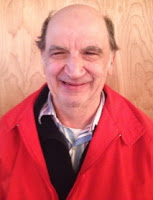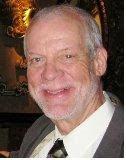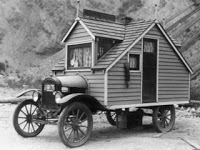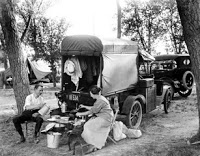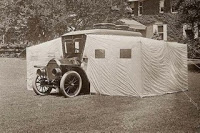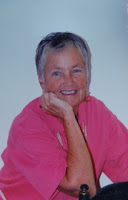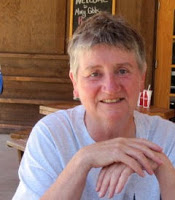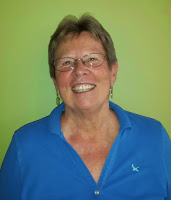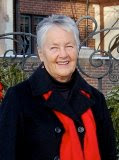In Honor of Brendan Fay
There was a gay libber from Gotham,
He was Irish from his top to his bottom,
They told him no parade,
He screamed, “What a charade!”
That Irish gay libber from Gotham.
For many years I
followed the radical career of Brendan Fay. We always seemed to be going to the
same protest marches. In fact, I knew him when he was quite young. He was
good-looking, somewhat short, his ears stuck out just enough to make him look
like a leprechaun. He was a great impassioned public speaker.
followed the radical career of Brendan Fay. We always seemed to be going to the
same protest marches. In fact, I knew him when he was quite young. He was
good-looking, somewhat short, his ears stuck out just enough to make him look
like a leprechaun. He was a great impassioned public speaker.
For many years the
Hibernian Society that was in charge of the St. Patrick’s Day Parade in New
York City refused to let any gay group march under their own banners. The Irish
Lesbian Gay Association went to federal court and claimed that since the St.
Pat’s day parade was a public accommodation, the Hibernian Society could not
exclude any group. ILGA lost the lawsuit. So, every year ILGA members and many
gay and Lesbian Irish stood on the sidewalks and protested.
Hibernian Society that was in charge of the St. Patrick’s Day Parade in New
York City refused to let any gay group march under their own banners. The Irish
Lesbian Gay Association went to federal court and claimed that since the St.
Pat’s day parade was a public accommodation, the Hibernian Society could not
exclude any group. ILGA lost the lawsuit. So, every year ILGA members and many
gay and Lesbian Irish stood on the sidewalks and protested.
Eventually the
local politicians became more supportive of the gay and Lesbian Irish people’s
cause, and the mayor and the governor stopped attending the St. Pat’s day
parade. Three or four years ago, the Hibernian Society permitted gay and
lesbian military veterans to march under their own banner. Though that was
progress, it was not good enough. “If we can march in Dublin and Cork, why
can’t we march right here in New York?” Brendan Fay made frequent visits to Ireland
especially when there were legal cases involving homophobia or legal
restrictions on abortion.
local politicians became more supportive of the gay and Lesbian Irish people’s
cause, and the mayor and the governor stopped attending the St. Pat’s day
parade. Three or four years ago, the Hibernian Society permitted gay and
lesbian military veterans to march under their own banner. Though that was
progress, it was not good enough. “If we can march in Dublin and Cork, why
can’t we march right here in New York?” Brendan Fay made frequent visits to Ireland
especially when there were legal cases involving homophobia or legal
restrictions on abortion.
ILGA once
advocated interrupting Catholic masses to remind the faithful of the Catholic
Church’s homophobic policies. And in general, ILGA was too radical for Brendan
Fay so he set up a more liberal organization the Lavender and Green Alliance
which sponsored the setting up of an inclusive Saint Patrick’s Day parade in
Woodside, in Queens County. This parade has become extremely popular and
well-attended over the years.
advocated interrupting Catholic masses to remind the faithful of the Catholic
Church’s homophobic policies. And in general, ILGA was too radical for Brendan
Fay so he set up a more liberal organization the Lavender and Green Alliance
which sponsored the setting up of an inclusive Saint Patrick’s Day parade in
Woodside, in Queens County. This parade has become extremely popular and
well-attended over the years.
Brendan Fay married Dr.
Thomas Moulton in Toronto, Canada, in 1995, and Brendan’s last name is Celtic
for “fairy.” At these many demonstrations over the years, I also met Ms.
Barbara Mohr, half Puerto Rican, half Irish. Ms. Mohr (née Hefernan) who also
worked hard for all of Brendan’s causes, including Dignity NY. Of course, she
is gone now.
Thomas Moulton in Toronto, Canada, in 1995, and Brendan’s last name is Celtic
for “fairy.” At these many demonstrations over the years, I also met Ms.
Barbara Mohr, half Puerto Rican, half Irish. Ms. Mohr (née Hefernan) who also
worked hard for all of Brendan’s causes, including Dignity NY. Of course, she
is gone now.
Question: Are any gay or
Lesbian groups marching under their own banners in the annual Denver Saint
Patrick’s Day Parade? Did any gay group every try? Was it an issue?
Lesbian groups marching under their own banners in the annual Denver Saint
Patrick’s Day Parade? Did any gay group every try? Was it an issue?
Then there is Daniel
Dromm, another gay Irishman on the New York City scene. NYC Council Member
Daniel Dromm set up and still supports Queens Lesbian and Gay Democratic Club
which meets in Jackson Heights and also founded the Queens Lesbian and Gay
Pride March Committee. This annual march is very well attended and is followed
by a rally and entertainment.
Dromm, another gay Irishman on the New York City scene. NYC Council Member
Daniel Dromm set up and still supports Queens Lesbian and Gay Democratic Club
which meets in Jackson Heights and also founded the Queens Lesbian and Gay
Pride March Committee. This annual march is very well attended and is followed
by a rally and entertainment.
© 15 Mar 2017
About
the Author
the Author
I was born in 1944, I lived most of my life in New York City,
Queens County. I still commute there. I worked for many years as a Caseworker
for New York City Human Resources Administration, dealing with mentally
impaired clients, then as a social work Supervisor dealing with homeless PWA’s.
I have an apartment in Wheat Ridge, CO. I retired in 2002. I have a few
interesting stories to tell. My boyfriend Kevin lives in New York City. I
graduated Queens College, CUNY, in 1967.
Queens County. I still commute there. I worked for many years as a Caseworker
for New York City Human Resources Administration, dealing with mentally
impaired clients, then as a social work Supervisor dealing with homeless PWA’s.
I have an apartment in Wheat Ridge, CO. I retired in 2002. I have a few
interesting stories to tell. My boyfriend Kevin lives in New York City. I
graduated Queens College, CUNY, in 1967.
